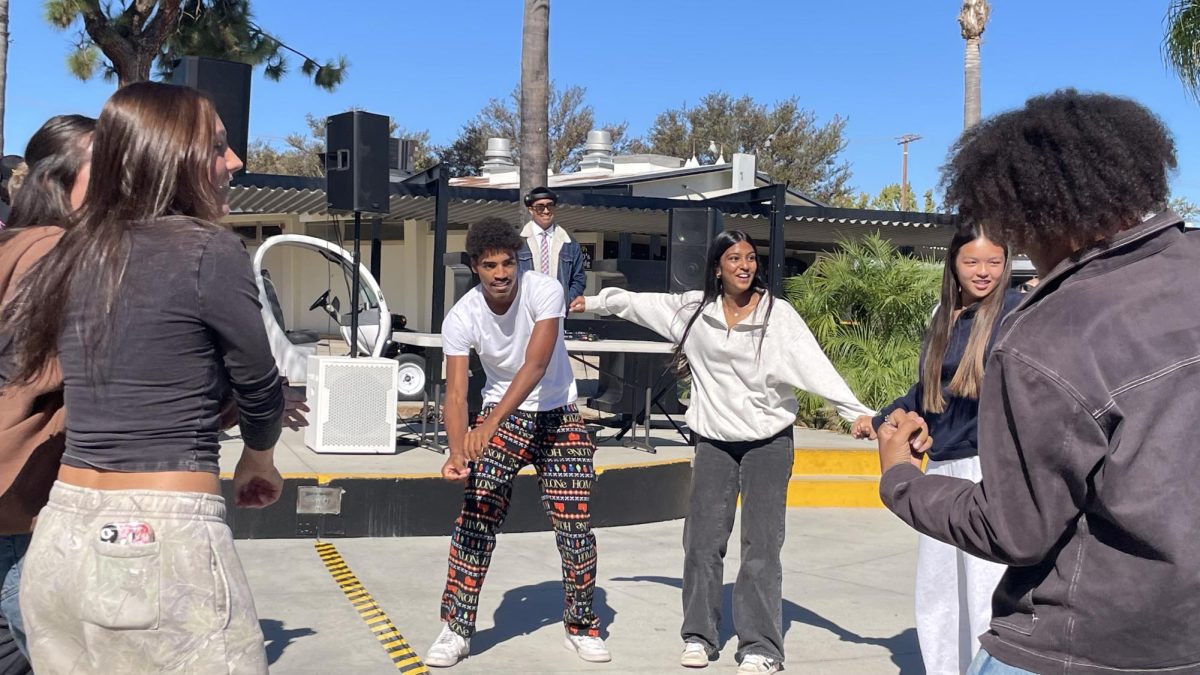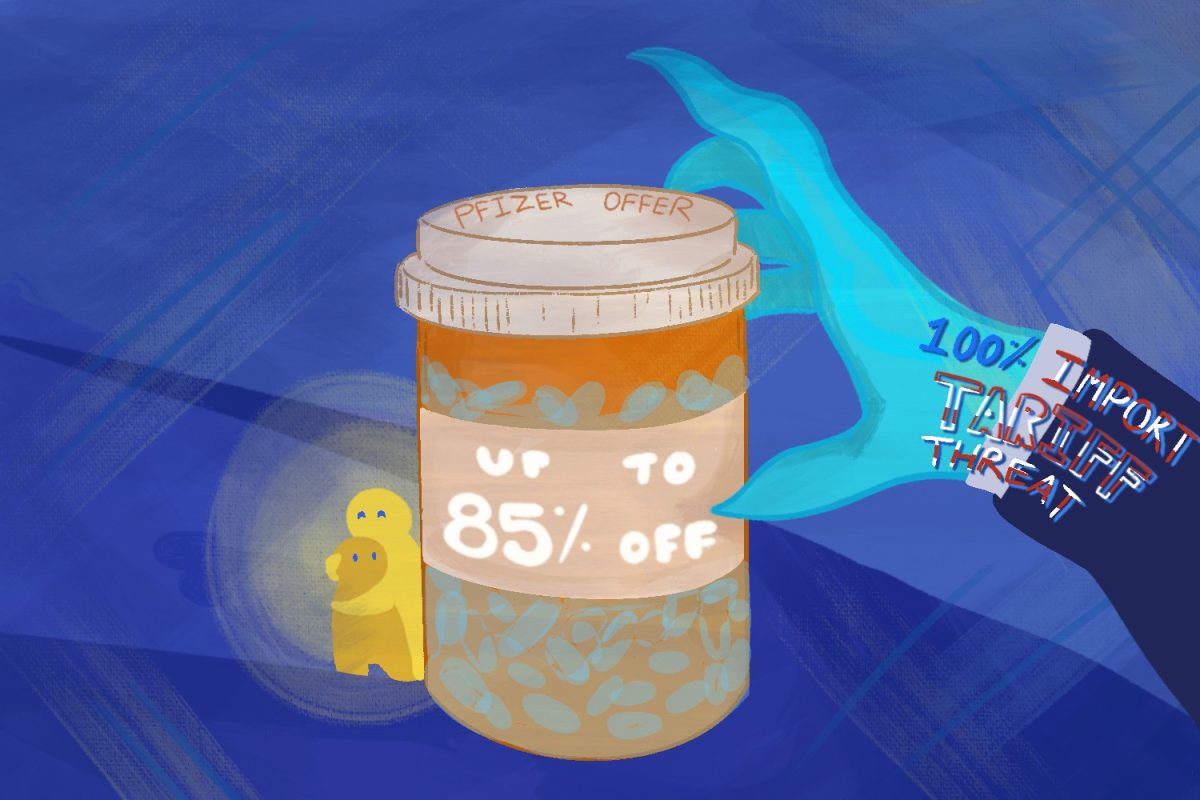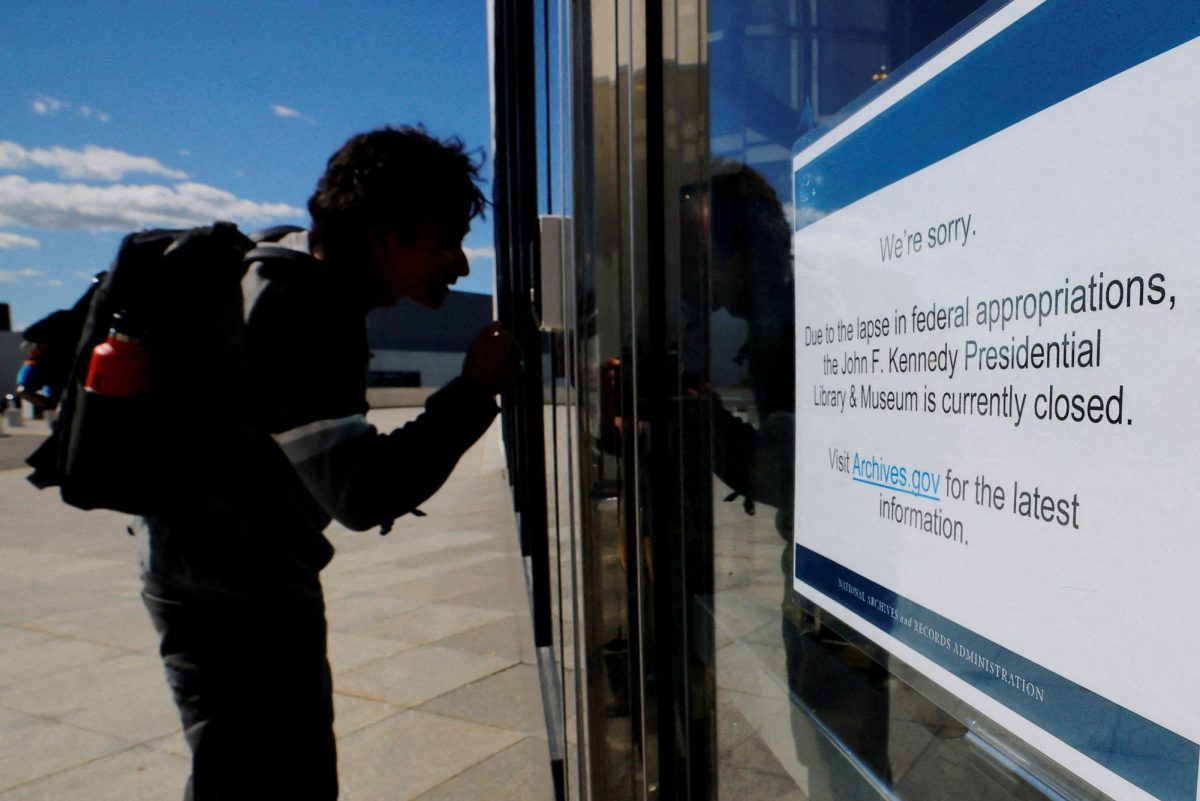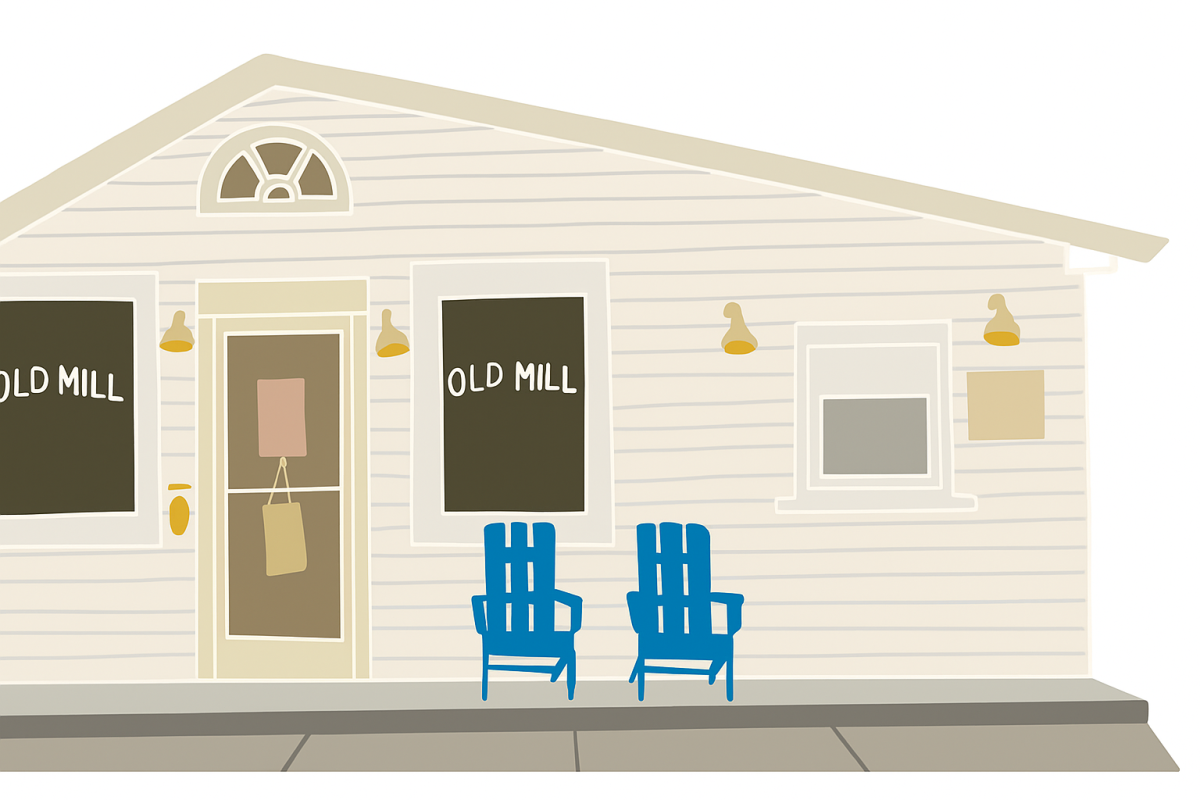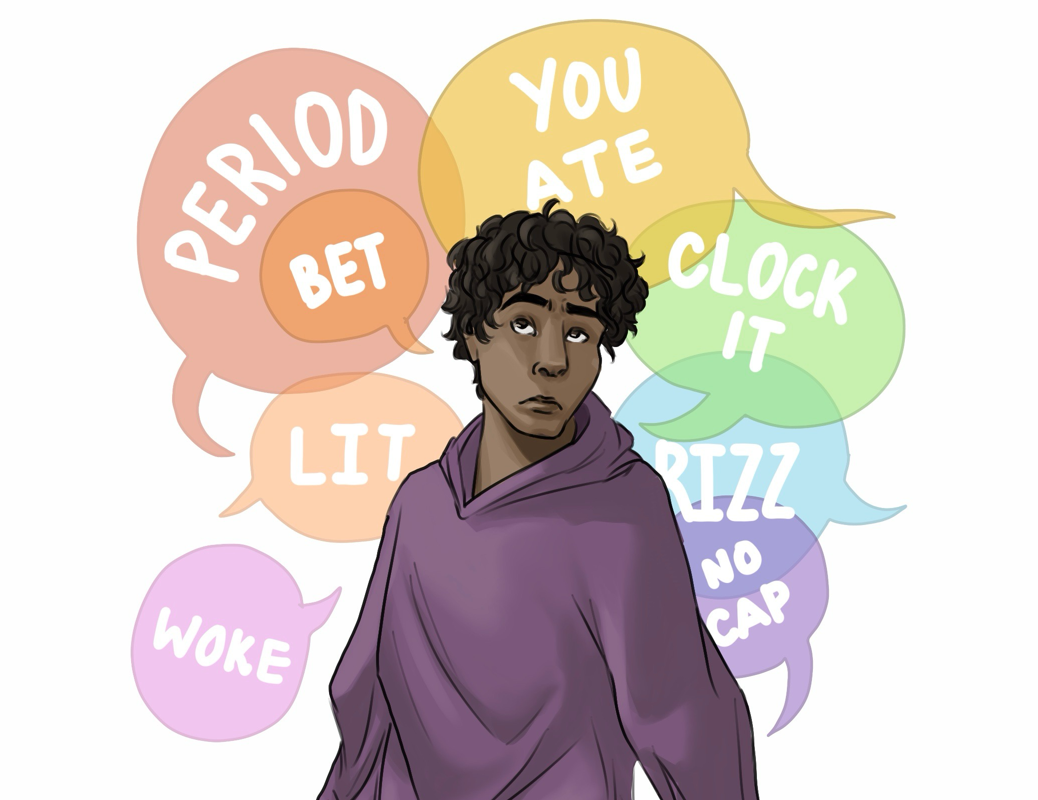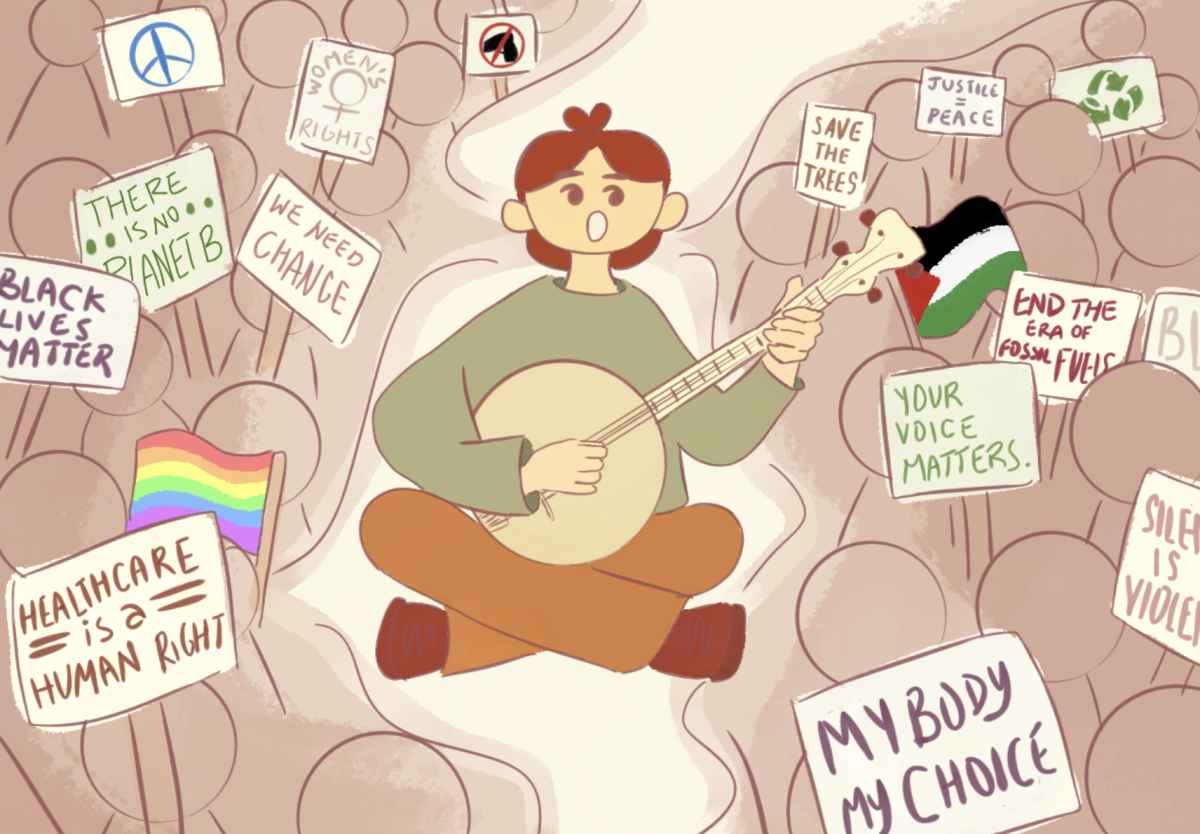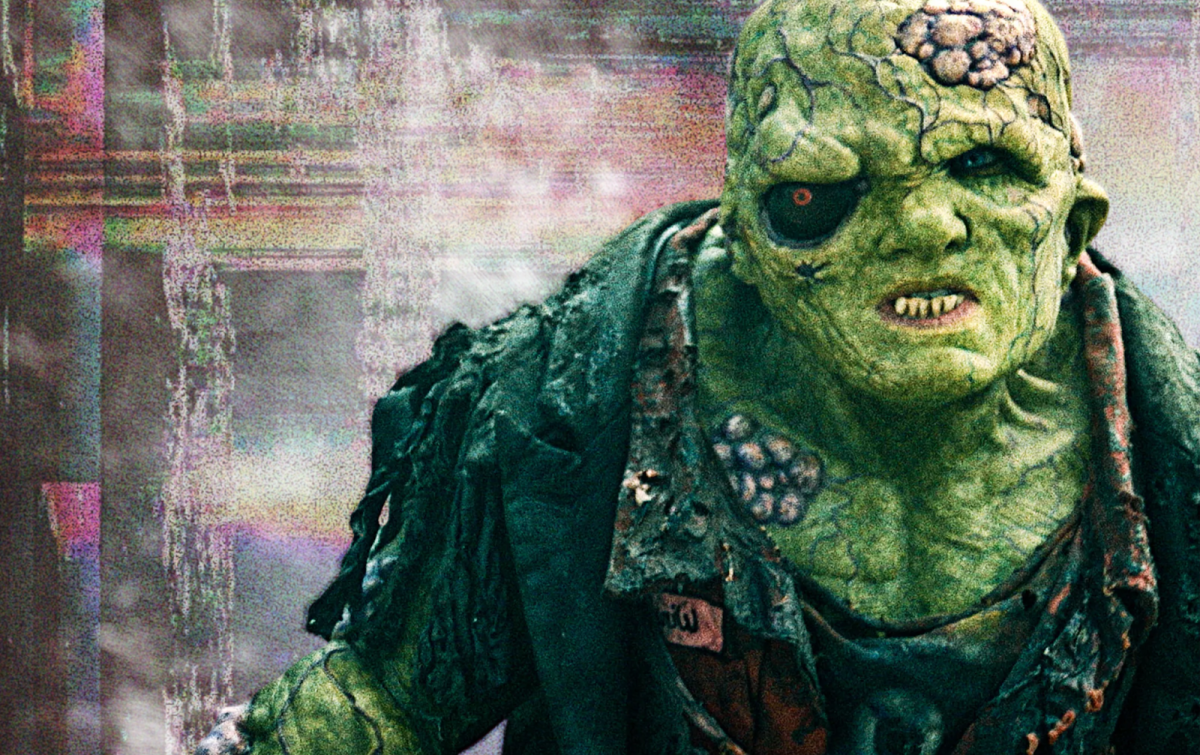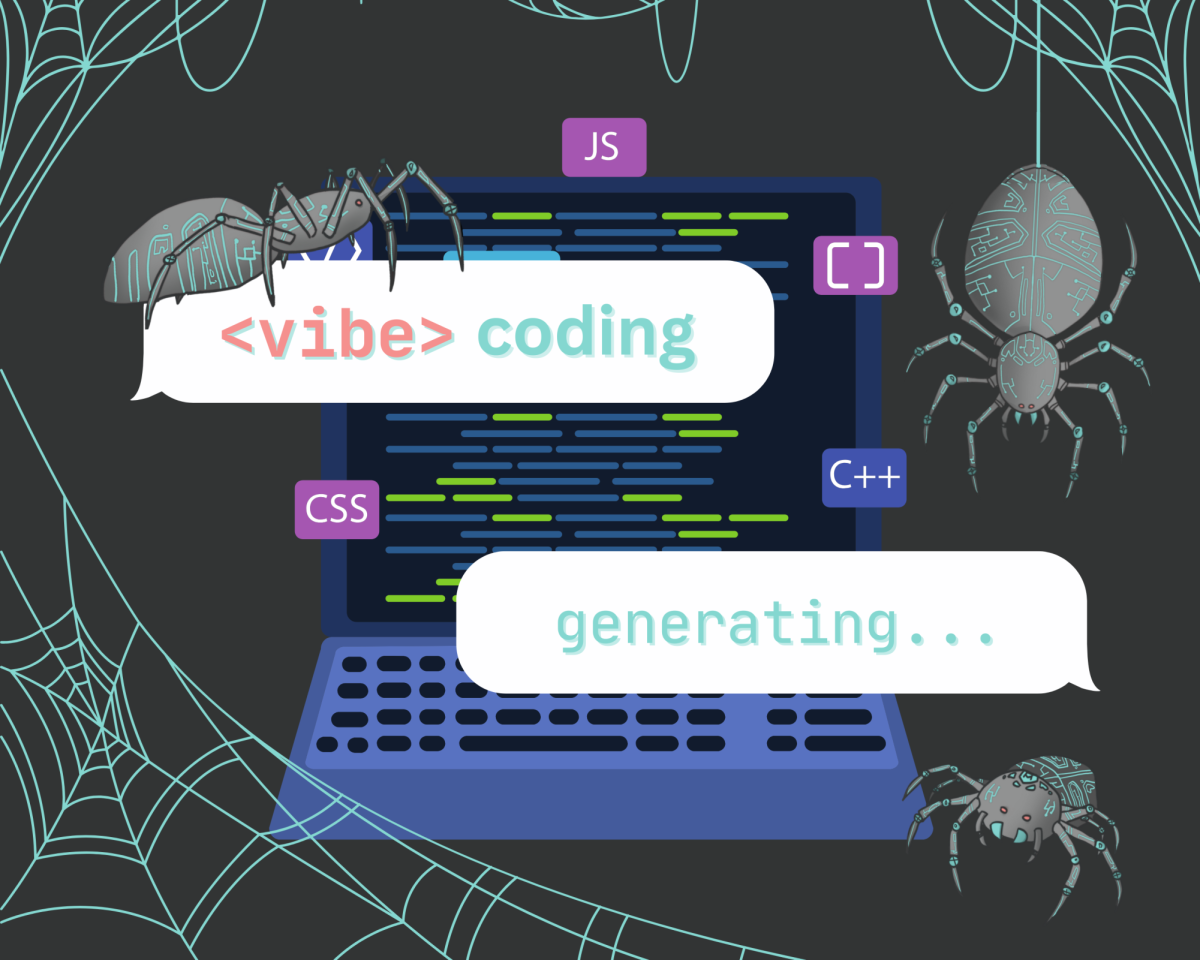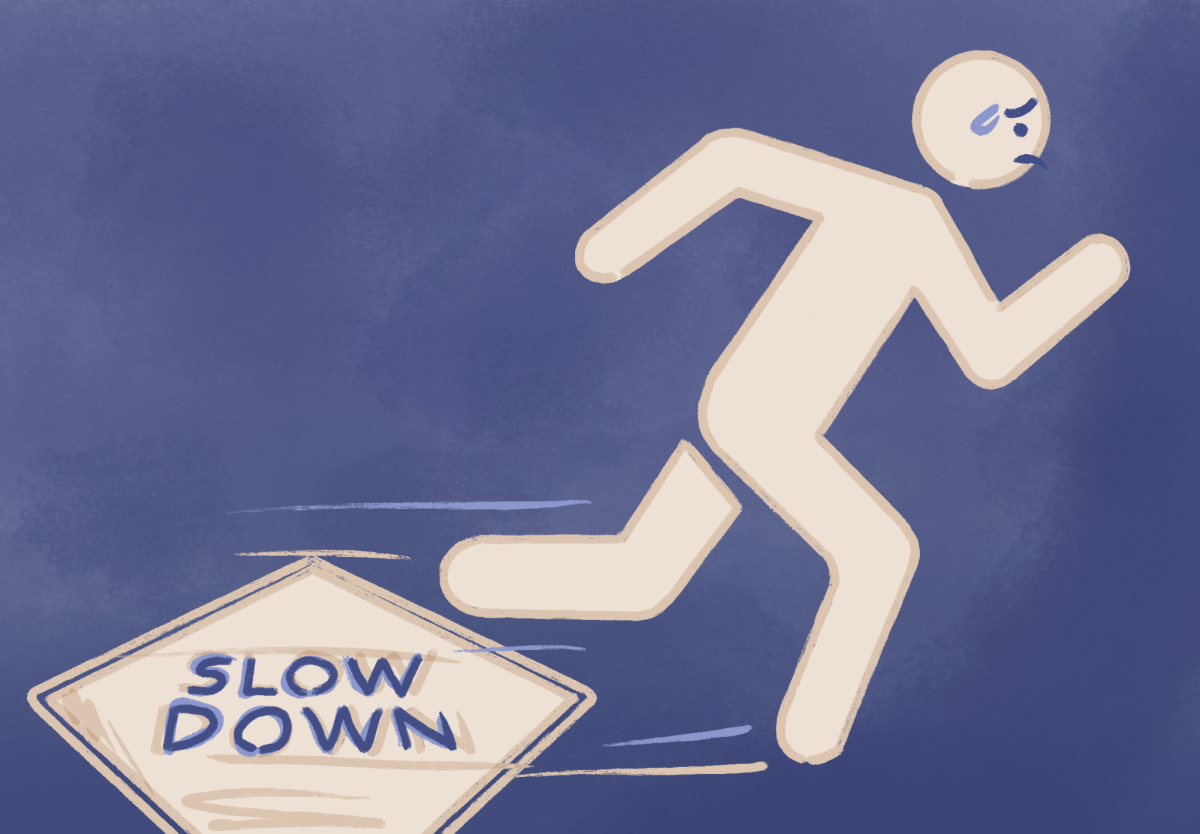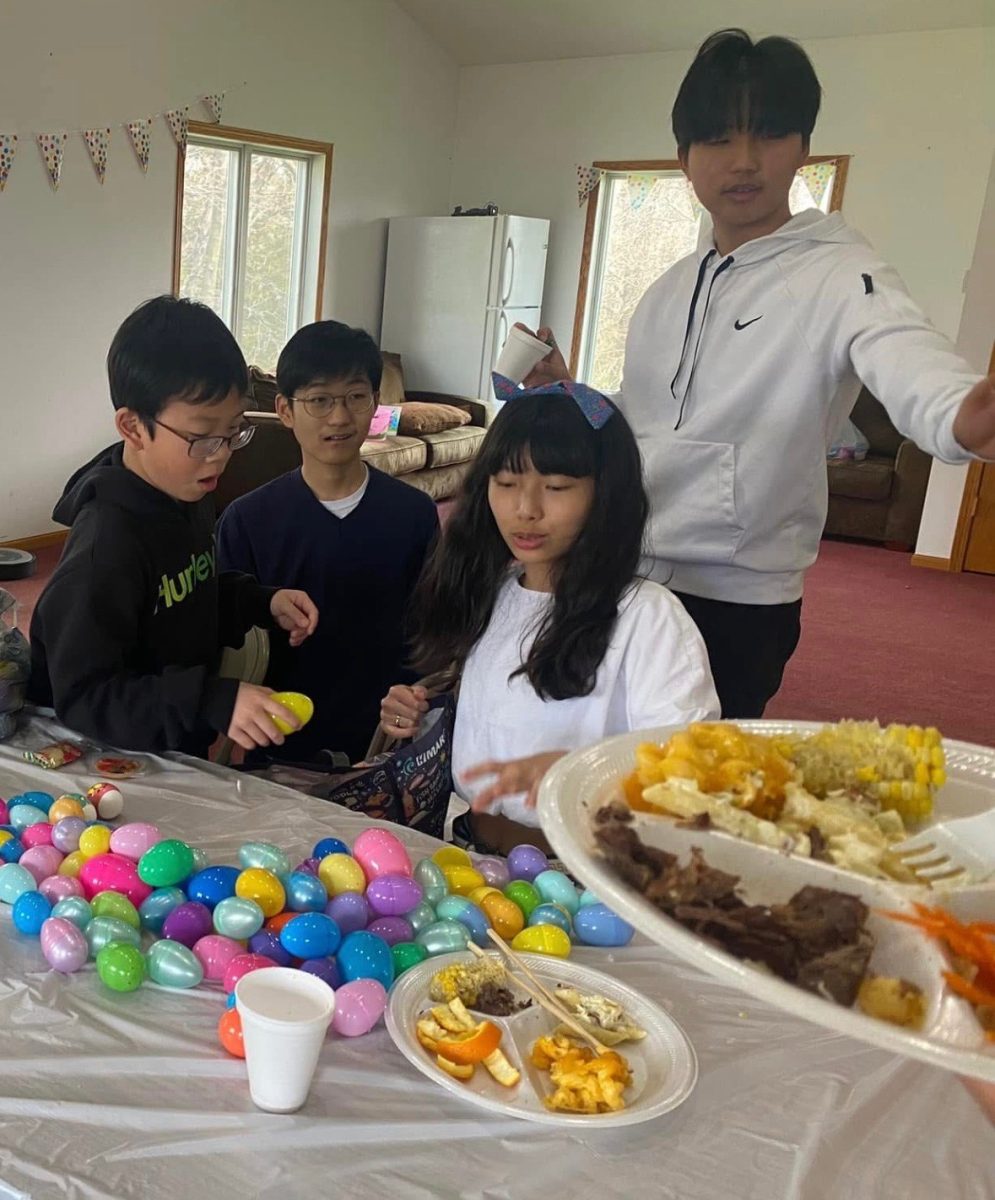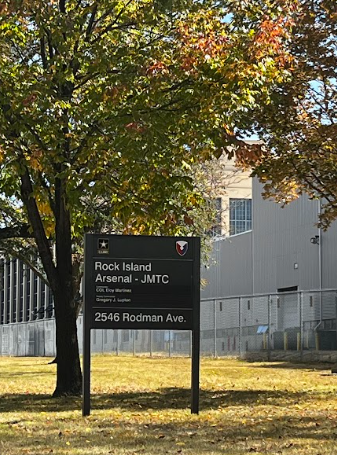From spirituals sung on plantations during slavery to anthems that fueled the Civil Rights Movement, music has always been a powerful force in the fight against oppression. Protest music has conveyed the anger, grief and hope of many generations through impactful lyrics and moving melodies, uniting people behind powerful causes that push for change.
In the past, people around the world connected and listened to protest music, with songs even becoming chart-topping hits. In the modern era, however, protest music has waned in popularity, giving way to catchier songs that rarely contain overt political messaging. As the world becomes increasingly violent with wars, government upheavals, social revolutions and digital divides, musicians should produce more impactful protest music to advocate for social and political change and bring attention to global inequalities.
During the Vietnam War, Creedence Clearwater Revival’s (CCR) “Fortunate Son” captured the anger millions of Americans had with a system where the poor were forced to go to war while wealthy elites could pay to avoid military service.
The chorus of “Fortunate Son” includes the lyric “I ain’t no millionaire’s son, no, no,” followed closely by “I ain’t no fortunate one, no.” While catchy, CCR used this song to call out the fortunate millionaires’ sons, saying they don’t have to go to war and “wave the flag” like everyone else. “Fortunate Son” didn’t just express frustration; it made ordinary people’s criticisms of the government feel represented in mainstream media, fostering unity over a shared cause. The song debuted on the Billboard Top 100 on Nov. 1, 1969, the same year President Richard Nixon authorized the bombing of the Viet Cong army despite not getting Congress’s approval. It climbed the charts and peaked at #14 just three weeks after release.
U.S. History teacher Gregory Herbert said he stresses the importance of protest songs in his class.
“It’s important that we study them so we can learn from the past and how to empower people to be activists and support their communities,” Herbert said.
During the Civil Rights Movement, many rallied around empowering songs that supported their cause. “We Shall Overcome” by Charles Albert Tindley, a Black minister and composer, is a protest song from the time period that carries powerful messages about hope and unity. Its repeating lyrics, such as “We are not afraid/We are not afraid/We are not afraid today” in the second verse and “We shall overcome” at the end of most verses, gave those protesting in the streets the courage to keep marching even in the face of violence and brutality. The song helped create solidarity with the movement and spread its message to those who may not have understood it.
Similarly, singer-songwriter Sam Cooke’s “A Change Is Gonna Come” supported the movement with a more intimate feel. Cooke expressed his grievances through narrative lyrics about the discrimination he regularly faced. His lyrics “I go to the movie/And I go downtown/And somebody keep telling me/‘Don’t hang around,’” demonstrate the racism he endured in the 1960s. Cooke was able to fight the oppression and wrote in the same song, “It’s been a long/A long time coming/but I know/A change gon’ come/Oh yes, it will,” showing his resilience and defiance, along with that of so many others fighting for civil rights.
Music Theory teacher Heather Borsum said music can convey a message in ways that words alone cannot.
“The energy behind a good song will match the tone of the words,” Borsum said, “and that energy will hit us at a subconscious level.”
From the 1920s, the start of the golden age of radio, to the early 2010s, when streaming services gained prominence, radio stations were the primary source of music for many people. This meant that protest songs would be played for everyone to hear, not just those affected by oppression, helping movements spread their message and build a following. However, in the modern age of listening, listeners can tailor their playlists to only what they want to hear. Social media platforms like TikTok have permanently changed the music industry by rewarding virality and fame to songs with shallow, catchy lyrics, resulting in many new songs lacking the important message that older songs had.
Music artists today largely strive to receive streams and chart well, while many older artists focused on pushing political messages. Protest music can speak to people’s emotions, as a single powerful song can take one person’s struggle and urge thousands to feel and act on it.
John Lennon’s “Imagine” asks the listener to picture a peaceful world without division. Written during the Vietnam War, Lennon drew inspiration from his wife, Yoko Ono, and her activism through poetry. Six days after Lennon was assassinated in 1980, fans gathered at Central Park and sang along to the song, continuing to spread his message of peace. Nearly 50 years later, the song’s meaning still stands, even though it’s no longer considered mainstream.
Protest music won’t fix corruption or end inequality by itself, but that’s not its purpose. The power lies in inspiring people to demand legislative change by magnifying the cries of those struggling to end discrimination and injustice.
While protest music in the U.S. has declined in popularity, countries around the world still utilize it as a tool for political activism. Over the past year in Kenya, protesters have flooded the streets to dissent against high taxes, corruption and police brutality. In June 2024, they stormed the Kenyan Parliament in Nairobi and set it on fire. As a result, the government brutally cracked down on protesters, killing more than 100 people.
Kenyan rapper Henry Ohanga, better known as Octopizzo, released the song “June 25th” last May, an emotional retelling of the youth-led protests in Kenya, memorializing the June 25th protests and their consequences. It quickly became the movement’s anthem, blasting at rallies, protests and on social media feeds. It conveyed this generation’s outrage and demonstrated music’s impact as fuel for change. Octopizzo’s music, which amplifies the voices of the Kenyan youth, shows the importance of giving movements a sound and spreading it until the world hears.
Reviving protest music doesn’t mean leaving behind genres like pop; it means speaking the truth, promoting relatable messages and inspiring listeners to act.
“Once a song gets popular with a movement, it can be played over and over again,” Borsum said. “People will sing it and bring it up over and over until it becomes a symbol for change.”
This story was originally published on The Black & White on October 19, 2025.

